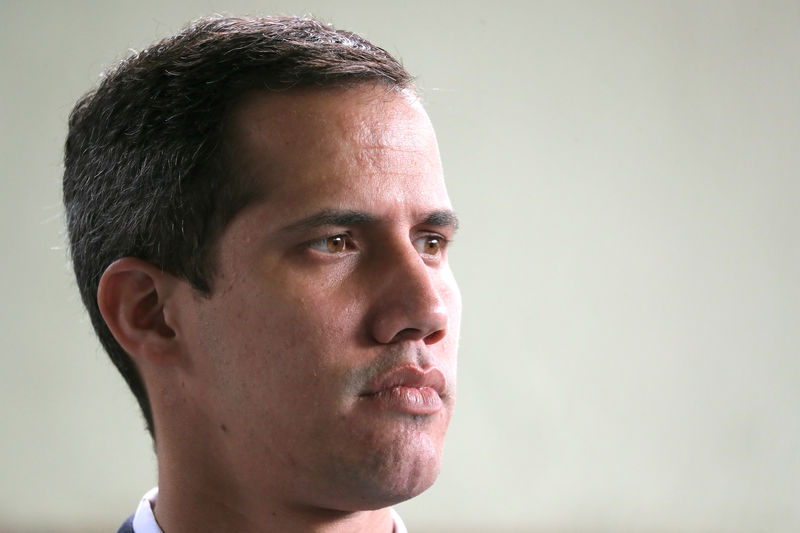(Reuters) - A U.S. judge has ruled that Venezuelan opposition leader Juan Guaido's representatives can present arguments in a court battle with Canadian mining company Crystallex International Corp, a boost to his efforts to retain control of the country's overseas assets.
Guaido, who heads the opposition-controlled National Assembly, invoked the constitution to assume an interim presidency in January, arguing President Nicolas Maduro's 2018 reelection was fraudulent. He has been recognized as Venezuela's rightful leader by most Western countries, including the United States.
His team has sought to take control of overseas assets owned by state oil company Petroleos de Venezuela, namely U.S. refiner Citgo. But Citgo is under threat from Venezuela's creditors attempting to seize shares in the company in return for unpaid debts.
In a March 20 ruling, the U.S. Court of Appeals for the Third Circuit said Guaido's representatives could request a stay in the dispute with Crystallex, which is going after Citgo to collect on an arbitration award in compensation for Venezuela's expropriation of a gold mining project.
"We grant the Republic of Venezuela's motion to intervene," Judge Thomas Ambro wrote, referring to a March 1 request by Venezuela's lawyers for a 120-day stay to allow Guaido's interim government "sufficient time to evaluate its position in this and other cases."
Guaido named a board of directors to Citgo in February, a move he described as "protecting our assets." Maduro, a socialist who says he is the victim of an attempted U.S.-led coup, has accused the opposition of trying to "steal" the company.
Ambro wrote that Guaido's team had until April 3 to present its argument for a stay, and Crystallex would have until April 10 to respond.
The move comes after a Florida judge earlier this month threw out a PDVSA lawsuit against oil trading companies in a bid-rigging scheme that yielded billions of dollars in illicit gains.

The case was brought by a U.S. litigation trust, which would have received a portion of any award, along with PDVSA. The judge ruled that the trust lacked standing to sue, since it had been declared invalid by the opposition-run National Assembly, "the only governing body in Venezuela recognized by the United States."